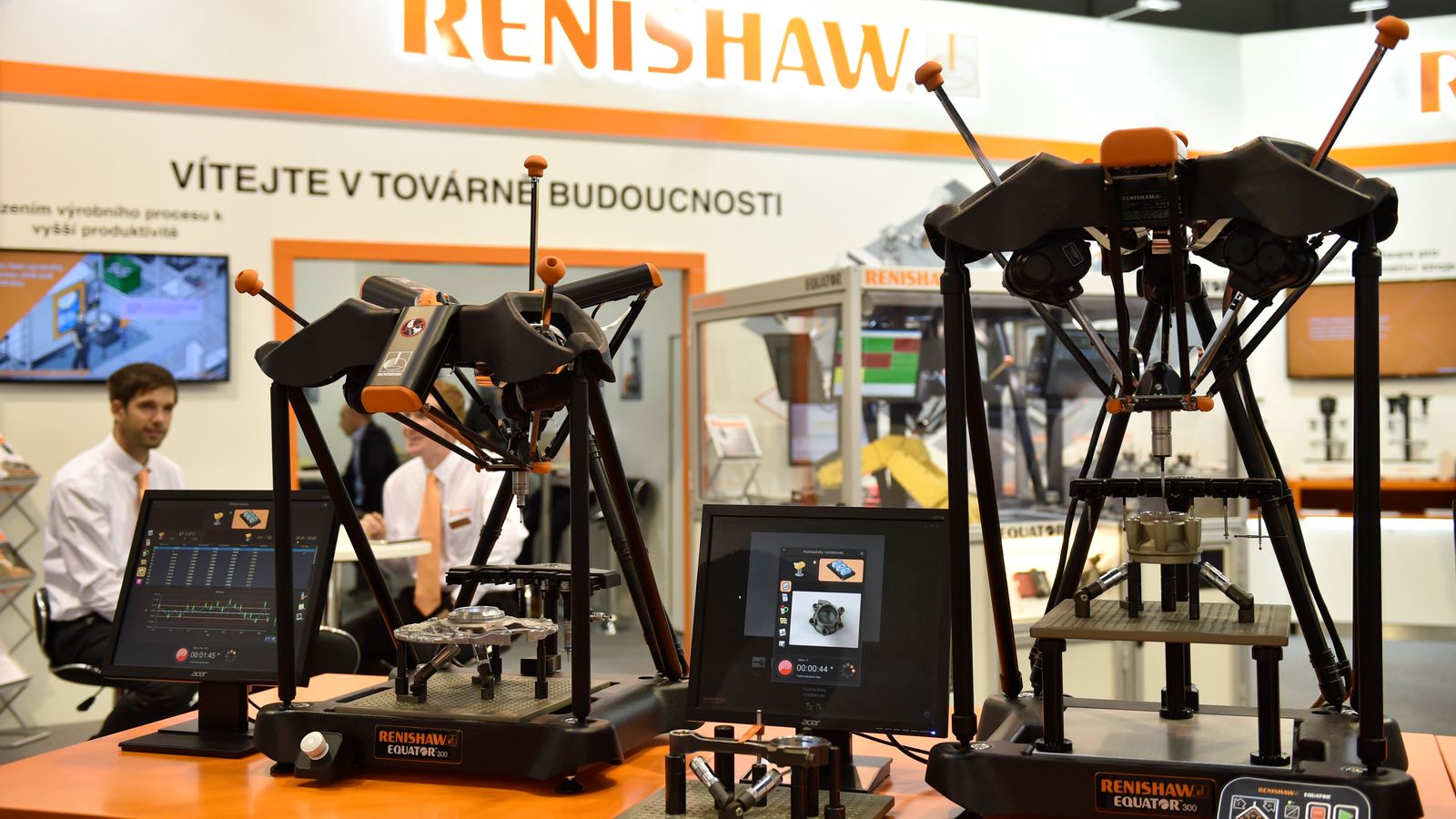British businesses are often accused of selling themselves too quickly and the City – which brings together those who need capital with those who supply it – of fostering short-termism.
Wednesday, though, brought a heart-warming example of a top British company refusing simply to flog itself to the highest bidder.
Renishaw, the precision engineering and healthcare technology firm that until recently was a member of the FTSE 100, announced it was no longer looking for a buyer.
The reason is one that should be applauded by anyone who believes in responsible capitalism.
Back in March, Renishaw’s co-founders – the executive chairman Sir David McMurtry and his non-executive deputy, John Deer – put their shareholding in the company up for sale.
However, as the pair – 80 and 83 respectively – own a combined total of 53% of Renishaw, it necessitated launching a formal sale process.
At the time, the announcement sent shares of Renishaw up by 18% to an all-time high, propelling it into the Footsie.
But the pair made clear that they would not be selling to just anyone.
The pair said at the time: “As the founders of Renishaw, we understand the importance of Renishaw’s culture, our place in the communities in which we operate, our commitment to research and development, and the loyalty of our staff, our suppliers, and the customers we serve; these together have been the foundation of our success for almost 50 years.
“With the board, we are therefore focused on ensuring that we find the right new owner for our business – one who respects and will continue to nurture these important attributes.”
That was an explicit warning to any would-be buyer seeking to buy Renishaw and then break it up or to cut its research and development budget – which, at 18% of sales, is unusually high for a British company – to stay away.
It was in keeping with the scepticism that Sir David has expressed about the City of London in the past.
In 2010, following the global financial crisis, he told his local newspaper, the Gloucester Citizen: “They [the City] are gambling and skimming off a lot of money. It is short-sighted trading. They can pull a lot of money out of the economy and that is offensive.”
And he told the Daily Telegraph in 2013: “The trouble is, in this country, engineers are not valued as a profession, like in Germany.
“When your son comes to you and says ‘What shall I do, Dad?’ in Germany, it’s ‘go into engineering’. Here, it’s ‘go into the City’.
“The top of the pile that we desperately need are persuaded away to a wealth-consuming activity rather than a wealth-creating activity. The City doesn’t create wealth. It removes it.”
Yet the conditions set by Sir David and Mr Deer set a high bar.
It was always going to be a tall order to find a buyer with the £5bn or so needed to buy Renishaw who was also prepared to continue running the company in the same way.
Private equity buyers were more or less ruled out while the government’s recent beefing-up of the takeover rules, ostensibly to deter Chinese buyers from making further inroads into British industry, also raised the risk that any foreign takeover of Renishaw could, thanks to the company’s work in some sensitive fields, be blocked on the grounds of national security.
Those concerns have proved justified.
Bloomberg revealed in May that a number of potential trade buyers, including Siemens of Germany, Hexagon of Sweden and Schneider Electric, the French company which owns a controlling stake in the UK engineering software group Aveva, had all taken a look but had been deterred by the price.
And on Wednesday the sale process was halted altogether.
Sir David and Mr Deer said: “At the start of this process we made it very clear that, with the board, we were focused on ensuring that we find the right new owner for our business.
“Whilst the formal sale process did not result in a new owner for Renishaw, we are satisfied that it ensured a thorough and rigorous process that enabled us to evaluate a wide range of potential buyers.
“We remain fully committed to Renishaw and have indicated to the board that we have no intention of selling our shares on the market for the foreseeable future.
“We continue to enjoy good health and as we consider the future of our shareholdings in due course, we intend to follow an orderly process that continues to take into account the interests of all stakeholders.”
The news has not surprised the City.
Analysts at Berenberg Bank told clients: “Despite receiving several proposals, valuation and management’s demands, for example retaining UK manufacturing jobs and high levels of research and development, were always going to be obstacles for a potential buyer, particularly a publicly listed one.”
The saga demonstrates how Dublin-born Sir David and Mr Deer like to do things differently at Renishaw, which is based in Wotton-under-Edge on the fringes of the Cotswolds and which employs more than 4,000 people worldwide, including some 2,700 in the UK.
The two men met in the early 1970s when they were working for Rolls-Royce in Bristol which, at the time, was working on the Concorde project.
Sir David, who was at the time deputy chief of engine design and deputy chief designer, was asked to come up with a way of devising a tool capable of measuring, to within a few micrometres (one micrometre is a thousandth of a millimetre), the width of a pipeline used in the engine.
He told the publication Masters of Manufacturing in 2008: “It took me all weekend – many hours and very nearly a divorce.”
The solution he devised, an electrical touch probe, was the intellectual property that underpinned the eventual creation of Renishaw.
The business, to which thousands of engineers from the United States to Japan have visited to pay homage, has made both men rich.
Sir David’s ultra-modern eco-house in North Nibley, near Dursley in Gloucestershire, even featured in a 2009 episode of the BBC’s Sherlock series as the home of fictional villain Charles Augustus Magnussen, played by Lars Mikkelsen.
Sir David, who gave the fee he received to charity, later admitted he seldom lives in the home because his wife regards it as too flashy.
So what now for the company?
Analysts at the investment bank Peel Hunt told clients: “Renishaw is a superb business and a highly attractive asset with exciting long term prospects, in our view.”
That does not mean the shares, down by 1% at one point today, may not come under short-term pressure due to a lack of clarity over what Sir David and Mr Deer will ultimately do with their holdings in the company.
Not that the pair, or their employees, will be too bothered by that.
They are all about the long, not short, term.






















